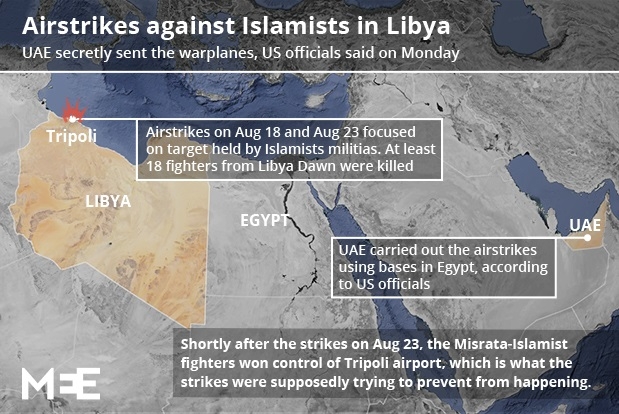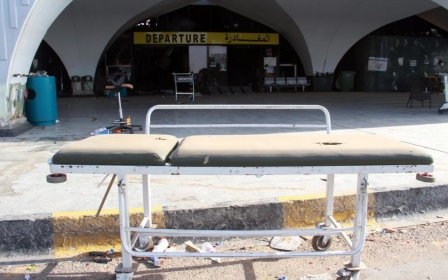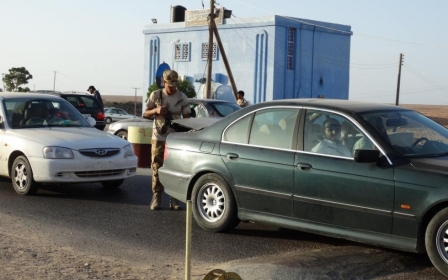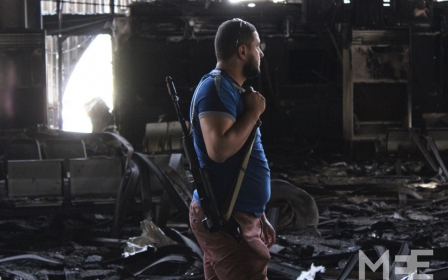Libya's GNC to take Tripoli strikes to International Criminal Court
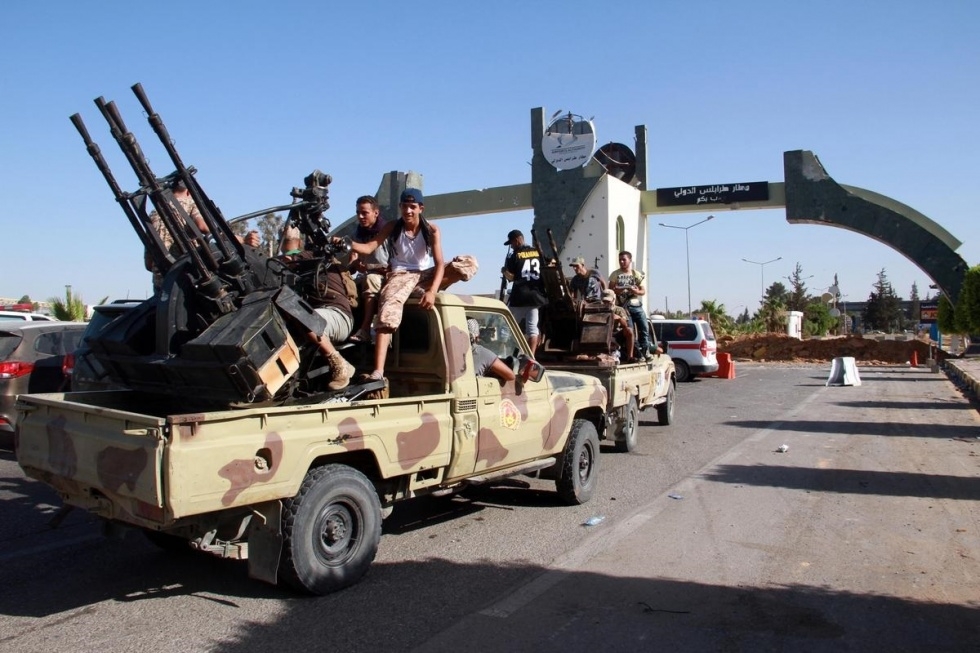
Libyan’s former parliament has vowed to take alleged Egyptian and Emirati airstrikes on the capital to the International Criminal Court (ICC).
"We will take further measures against Egypt and the United Arab Emirates over their violation of Libyan sovereignty," Omar Humaidan, spokesman for the outgoing General National Congress, told Turksih Anadolu Agency late on Tuesday.
"We will not allow any violation of Libyan sovereignty and will punish whoever interferes in our internal affairs," he added, while stressing that the matter would be referred up to the court.
The ICC has previously had a strained relationship with the Libyan authorities that have thus far refused to hand over former dictator Moammar Gaddafi's son Saif, despite repeated calls by the international community that Saif stand trial in The Hague for crimes against humanity.
The GNC's ICC pledge comes hours after the UN Security Council passed a unanimous resolution, calling for an immediate ceasefire and the tightening of an arms embargo, with experts now being asked to draw up a list of names for a UN sanctions list.
In response to the vote, French President Francois Hollande on Thursday called on the UN to organise "exceptional" support for Libyan authorities to restore order there because there was a risk the country could fall into chaos.
"My main concern today is Libya," Hollande told an annual address to French diplomats. "If we do not do anything internationally, terrorism will spread across the entire region.
"It is vital that the legitimate parliament, elected by the people last [June], forms an inclusive government capable of relaunching the national reconciliation process and to disarm militias. Otherwise it will be chaos," he added, in reference to the two rival Libyan parliaments currently jostling for power.
The new Tubruk-based House of Representatives was elected in June in a vote largely deemed free and fair. The outgoing Islamist-dominated GNC reconvened on Monday and elected an Islamist-backed deputy as the new prime minister.
On Wednesday, six House of Representatives interim ministers resigned in protest, citing parliamentary support for a "certain party" in the current conflict, although they did not specify which faction they were backing.
Tripoli strikes
The political escalation comes after aircraft bombed Islamist militia positions in the capital Tripoli first on 18 August and then again on 23 August.
Foreign powers were all quick to deny involvement. However, the US has since issued a statement condemning Egypt and the UAE for carrying out the strikes, prompting Tripoli-based Islamist militias to demand justice and threaten to take the case to the ICC.
In retaliation for the strikes, Misratan-led troops launched a successful offensive on Saturday to reclaim Tripoli International airport from rival nationalist Zintan militias.
Humanitarian crisis
The clashes, backed by the growing uncertainty over the prospect of foreign intervention, have further fuelled uncertainty.
UN’s outgoing Libya envoy Tarek Mitri warned on Wednesday that there was "mounting danger in Libya and beyond" given the government's "very limited capacity" to restore order and tackle the threat from heavily-armed militias.
“In Tripoli, we have seen an unprecedented movement of population in an attempt to escape the fighting,” Mitri told the UN Security Council in his final address as the head of the UN Support Mission in Libya (UNSMIL).
“The damage inflicted on the public institutions in Tripoli's southern and western sections - including the airport, the main oil depot, roads and bridges - is nothing less than tragic.”
Mitri also warned that according to conservative estimates at least 100,000 Libyans have been displaced by the recent fighting and that at least another 150,000 were seeking refuge abroad.
"There is a general deterioration of living conditions [in Libya]. Food, fuel, water and electricity are in short supply. The departure of foreign medical staff and shortages in medical supplies has rendered the plight of civilians more critical," Mitri added.
Libyan Ambassador Ibrahim Dabbashi also raised the alarm, saying the "situation might unravel in a full-blown civil war".
"I have always excluded the possibility of civil war but the situation has changed," he said, citing the Tripoli clashes as a new, worrisome development.
According to Mitri, the use of heavy weapons in densely populated areas by all sides has become commonplace, as well as kidnappings, arson and looting.
This includes the targeting of foreign nationals, with four Egyptian nationals reportedly kidnapped on Tuesday.
According to the Egyptian Commission for Rights and Freedoms, the Egyptians were seized near Sirte in central Libya and were specifically targeted because they were Christians.
Three brothers and a cousin were all taken, the group said. The incident follows on from a string of kidnappings and killings that also appeared to target Egyptian nationals earlier this year.
Middle East Eye propose une couverture et une analyse indépendantes et incomparables du Moyen-Orient, de l’Afrique du Nord et d’autres régions du monde. Pour en savoir plus sur la reprise de ce contenu et les frais qui s’appliquent, veuillez remplir ce formulaire [en anglais]. Pour en savoir plus sur MEE, cliquez ici [en anglais].


